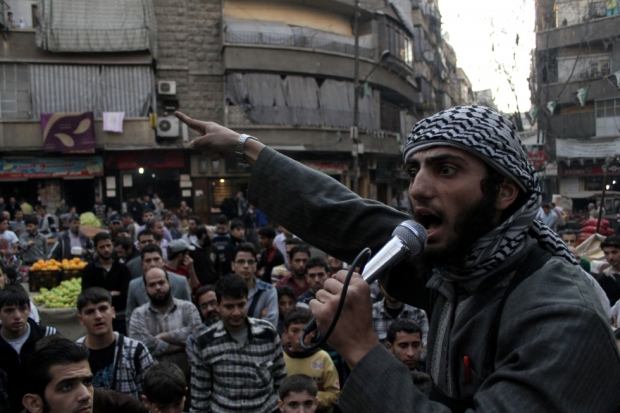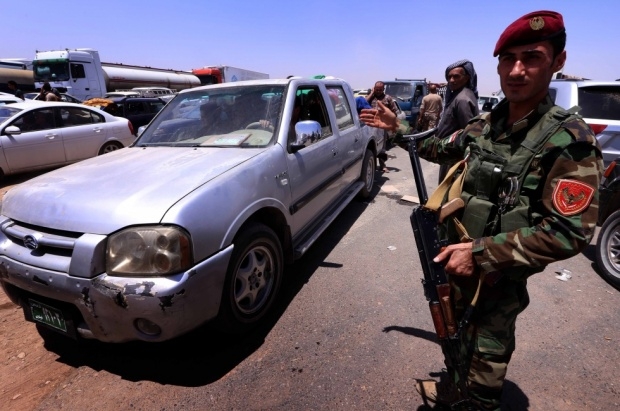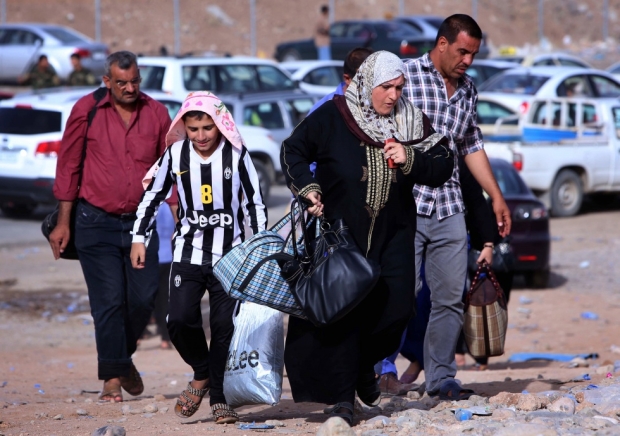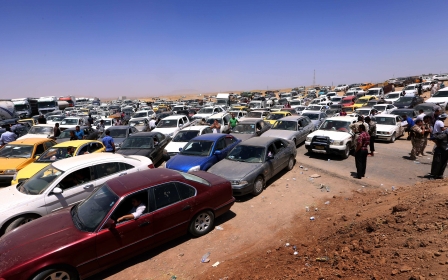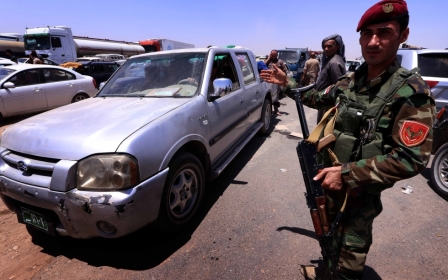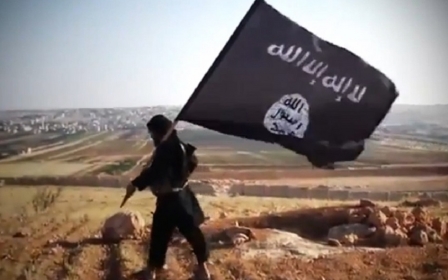In Erbil, fleeing Iraqi soldiers take aim at 'Baghdad's betrayal'
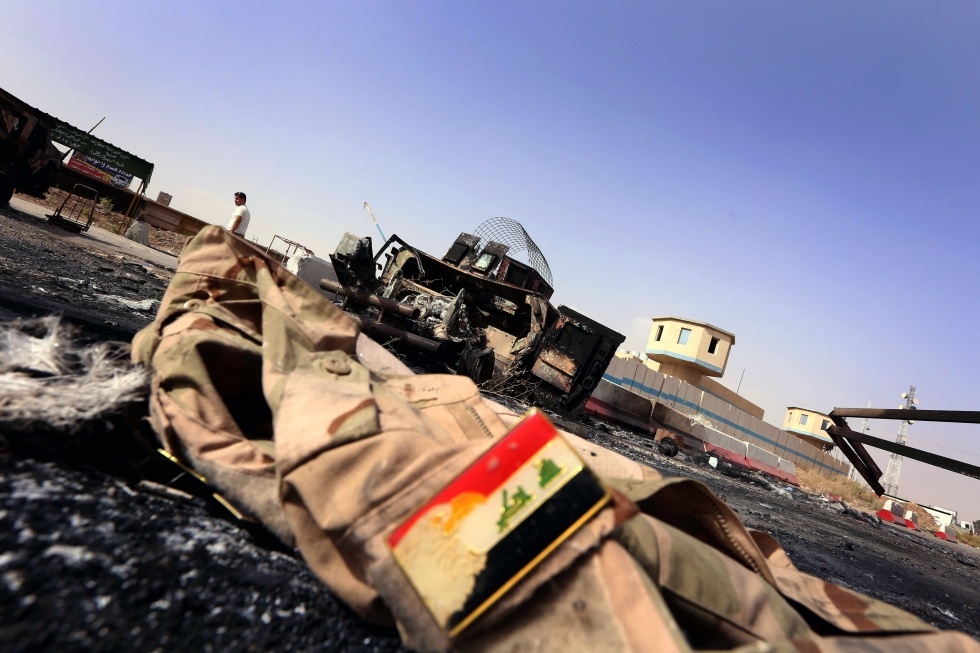
ERBIL, Iraqi Kurdistan – Iraqi soldiers who have fled a lightning offensive by Islamic State of Iraq and Levant (ISIL) forces in Mosul are blaming a lack of coordination from Baghdad for the collapse of their defense of the city.
Ahmed fled Mosul on Tuesday morning with hundreds of other men from his battalion to Erbil in Iraqi Kurdistan, in a move that led to the final surrender of Iraq’s second-largest city.
“Soldiers cannot do anything without commanders and our commanders left the army,” said Ahmed. The 32-year-old soldier from Baghdad had no qualms about criticizing the army’s behaviour, adamant that the problems came from above and that he and his fellow soldiers had been betrayed by army commanders.
After just four days of fighting, ISIL insurgents have gained control the provincial government headquarters, the airport and TV stations and banish the Iraqi military in Mosul. This has also seenthe displacement of approximately 500,000 Iraqis, hundreds of thousands of which have fled to Iraq's Kurdistan region.
“They betrayed us, the just left and didn’t give any orders,” said the young soldier. According to him, the army superiors had returned to Baghdad by helicopter forcing the low-rank soldiers to make their way to Erbil in search of safety.
“They were ordered to move forwards, not backwards,” said Ahmed, sparking consenting nods from three other soldiers stood beside him.
“Forces abandoned their weapons and the commanders fled, leaving behind weapons, armored vehicles. Their positions were easy prey for terrorists," said Iraq’s parliament speaker in a damning statement.
At the Khaziri checkpoint, just 30 minutes from the Kurdish capital of Erbil, a sea of cars lined up to pass the security check, carried out by Asayish and Peshmerga – the Kurdish security and military forces respectively. Empty bottles of water and plastic plates with discarded food littered the ground.
“All of the Iraqi army left, we left Mosul with the Iraqi troops,” said 63-year-old Wahid Mohammed, who had just made the hour and a half journey from Mosul to Erbil with his family.
In what became a recurring theme among the displaced families, Mohammed explained that the armed insurgents had not targeted civilians and that they were not afraid of them. Instead, he said: “we are not worried about ISIL, we are fearful of [Iraqi Prime Minister Nuri al-] Maliki. We worry we will be attacked with barrel bombs and our families will be the victims, like in Syria. If Maliki fights ISIL, the victims will be the civilians”.
In a conflict that has seen a string of criticisms directed at Maliki, including the White House calling on the federal government to “step up to the plate” and Iraqi Shiite leader Muqtada al-Sadr's parliamentary bloc blaming him for the rise in militancy, the Kurdistan Regional Government (KRG) has undoubtedly come through as another tough critic.
“Baghdad was carless in dealing with the situation…they did not respond in time and they are to blame,” Kurdistan’s Head of the Department of Foreign Relations Falah Mustafa told Middle East Eye.
“Soldiers cannot do anything without commanders," Ahmed, an Iraqi soldier.
For some, like 39-year-old Rafaa, the situation in Mosul is not a blame-game but merely another disappointment in a series of let-downs. The mother-of-one had returned to Iraq from Australia only three weeks ago for the first time in nine years. Reassured by her family that the violence had reached a lull, she relocated to her hometown of Mosul with her elderly husband and child.
Rafaa was searching frantically for someone to speak to about her passport, she hoped that her Australian citizenship would facilitate her entry into Erbil.
“I grew up with war after war after war, I left my country nine years ago and each year I said I’m going back but my family would say ‘no, it’s not a good condition’. I’m very disappointed, I don’t know when my country will be fixed. I ask God to help us,” said Rafaa, who was on her way to Sulaymaniyah to stay with her sister.
Iraqi IDPs are not allowed to enter their country's Kurdistan region unless they have family members or sponsors who can take responsibility for them.
Fearing an increase in violence Rafaa, her family and her two cats fled the city on Tuesday. Her son stood close to her, holding on to his mother’s niqab at all moment, slowly shifting from one foot to the other in tired sways.
“I am very worried about him,” she said looking at her child. Rafaa explained that as they left the city under heavy fire, she was swift in protecting her child from probable traumas, telling the boy not to worry, that it was only celebratory gunfire
“He saw cars burning, he was shocked and said ‘it’s hell’ and I said ‘no, this is like an action movie,” she said.
Some of the families waiting on the outskirts of Erbil on Tuesday night made it into the city, but a number of them were forced to sleep in their cars or out in the open air. On Wednesday morning under a scathing sun, some of the families had decided to return to Mosul. One of the local traffic policemen explained that people were tired of the situation and the lack of commodities, wanting to return home where they had running water and electricity.
The alternative for those who are not allowed into the cities is one of two camps currently being set up by the Kurdish Regional Government and UNHCR in Erbil and Duhok. Just outside the crowded checkpoint, surrounded by a seemingly endless carpet of dry grass and shaken by continuous gusts of hot air, a group of approximately 30 tents had only just been set up.
The desolate site had received seven guests so far, a family who had arrived on Monday. “We got here two days ago after the army left,” said one man. Inside the empty blue tent his wife sat on the floor, soothing a tiny baby.
“We left because all the families have left, the problem is not ISIL or the Iraqi army, there is no life in Mosul. I have seen ISIL convoys patrolling Mosul but they are not hurting people, we are more scared of bombings by the Iraqi army,” he explained.
For the father of seven, the main priority was security, a comfort that him and his family appeared to have found in the Kurdish enclave despite the austere accommodation. “There is security here, it’s safe,” he said.
The number of current IDPs and those due to reach this part of Kurdistan is still uncertain, however not all are from Mosul, suggesting that the number might be higher than expected.
One family of five from Bartella, an Assyrian city between Mosul and Erbil, had also found refuge in Erbil on Wednesday. The father-of-three, who asked to remain anonymous, explained that while they had not come under direct threat from ISIL they had chosen to take preventive measures and leave their hometown.
According to him, the Shabak community is under greater risk because of its unique identity and the large number of Shabaks that belong to the Peshmerga forces. The family was directed towards Kabat, a town of 40,000 just on the other side of the Khazir checkpoint.
The mayor of Kabat explained that approximately 100,000 IDPs had passed through the Khazir checkpoint in the space of one day. He was adamant that there is no imminent danger in Kabat or in the rest of the Kurdish region. “ISIS cannot do anything in the Kurdish region because they have no local support,” he told Middle East Eye.
In the midst of a conflict that has seen a large number of casualties in a very short period of time and the fall of Iraq’s second largest city, the highest price has undoubtedly been paid by the half a million displaced Iraqis who have been forced to abandon their homes and seek refuge.
Wahid Mohammed smiled when asked whether he thought him and his family would soon return to Mosul. “We have enough money for one week … but I think we will be here for four weeks,” he said, hopeful and eager to return to his hometown but unlikely to be back any time soon.
New MEE newsletter: Jerusalem Dispatch
Sign up to get the latest insights and analysis on Israel-Palestine, alongside Turkey Unpacked and other MEE newsletters
Middle East Eye delivers independent and unrivalled coverage and analysis of the Middle East, North Africa and beyond. To learn more about republishing this content and the associated fees, please fill out this form. More about MEE can be found here.


